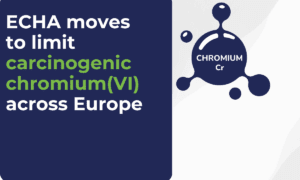The key theme of the CRM act is the focus on the EU’s strategic independence, as these materials are crucial for European industry, as well as for achieving the union’s Zero Pollution goals. Due to, amongst other reasons, the global crises of the recent years, demand for such materials are expected to increase – hence, the EU is in need of secure supply chains, and dependency reduction.
Commissioner Breton highlighted the cornerstones of the act: setting priorities, creating, and ensuring the resilience of supply chains, creating strategic partnerships, and focusing on research as well as circularity. According to the act, the priorities will outline and set directions for the actions, therefore they need to be ambitious. With regards to supply chains, the reduction of administrative burden, as well as the monitoring, and equal distribution of CRM are crucial. Partnerships, according to the commissioner need to be mutually beneficial and attractive to international partners. However, in order to reduce reliance on CRM imports, the commission also emphasises supporting research and innovation, to achieve potential breakthrough technologies, as well as circularity, and recycling as much CRM as possible – the latter also significant from an environmental perspective.
During the discussion with ITRE members, following the Commissioner’s presentation, numerous comments were made. Amongst others, MEP’s highlighted how the CRM act and the Net Zero Industrial plan are interconnected, as well as emphasized the role of green industry and the potential for, but also the implications of sourcing CRM from within EU member states.
The state of play related to Critical Raw Materials is illustrated well by the EuChemS Periodic Table, highlighting the scarcity of chemical elements – and, in addition, the Workshops related to this document delve into the specifics of elements considered CRMs by the EU. The societal and policy implications of increased use of the Critical Raw Material Lithium due to electric vehicles and consumer electronics is reflected in the recent update of the EuChemS Periodic Table, which concerned changing the colour of lithium from yellow (limited availability) to orange (rising threat). In addition, an upcoming EuChemS workshop, to be held in the European Parliament on 25 May, will scrutinise the use of Phosphorus – also regarded as CRM. Alongside examining individual elements, EuChemS is also involved in the general topic of circular economy, as the organiser of the event “The value is on circularity” as well as an invited member of the Zero Pollution Stakeholder Platform.



